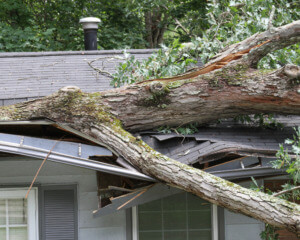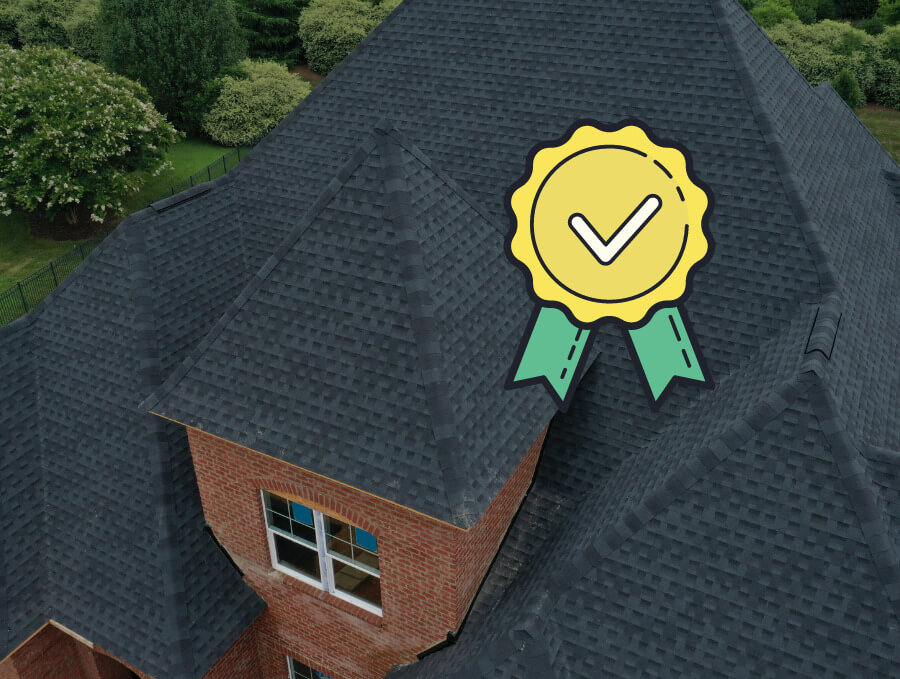Are Roof Warranties Worth Buying?
The decision to get a new roof provides peace of mind for the future of your home, but what happens if something goes wrong? Most roofing manufacturers and installers provide warranties on new roofs. These warranties are either included with the purchase or offered as an extended package. What is the difference between them? Is a roofing warranty worth buying?
The Two Types of Roofing Warranties
A roofing warranty will fall into one of two categories: Roofing Materials or Installation. As the names suggest, Roofing Materials warranties cover the materials used as part of the new roof, and Installation warranties cover work done in order to install the roof.
Roofing Materials Warranty
Roofing Materials Warranties are either included with the roof or offered as an additional option. Standard manufacturer warranties are included with the purchase of roofing materials as a basic limited lifetime guarantee. It will often only cover defective products, for a limited time, at the fault of the manufacturer such as:
- Faulty shingles
- Sealant failures
- Underlayment
- Other defective materials provided to the installer
These manufacturer warranties don’t cover installation mistakes or the cost of labor to reinstall roofing materials. Because of this, and since the term “limited” varies from one manufacturer to another, it is important to always check the warranty documentation.
An extended manufacturer warranty is available at an additional cost that provides continuous coverage for defective materials and may provide workmanship coverage against installation errors. This warranty also provides coverage for all roof system components that may not be covered under the standard warranty or extend the period of time that system components are normally covered.
However, some extended warranties have stipulations. They are usually only valid when a certified roofer installs the materials and most require an entire roof system to be installed in order to provide coverage. Again, it is important to read a full warranty before making your decision.
Melvin Belk Roofing installs asphalt shingles that are covered by a manufacturer warranty guaranteeing the replacement or repair of any defective shingles that were installed. Their lifetime warranty is good for the amount of time that the original owner owns the private property where the shingles are installed. Shingles on commercial properties are guaranteed for 40 or 50 years, depending on the type of shingle installed.
Installation Warranty
Workmanship Installation Warranties are provided by the roofing installation company and may vary depending on the contractor. These typically cover the cost of any labor needed to repair installation mistakes and serve as a guarantee of the work done by your roofer.
For example, Melvin Belk Roofing guarantees all work for 10 years after roof installation. Any areas with defective labor are replaced or repaired as long as the home has been properly insulated and eaves vents are not blocked. Since workmanship guarantees don’t cover acts of nature, any damages caused by high winds can be covered by an insurance policy if the homeowner has one in place.
Never hire a roofer that does not stand behind their work with an Installation Warranty.
Common Questions
How Long Do Manufacturer Warranties Last?
Warranties usually last between 25 – 30 years but can be between 2 and 50 years depending on the provider and material used. Different types of shingles often have different length warranties due to the durability of the materials. For example, asphalt shingles generally have a 20-year warranty while architectural and dimensional shingles may have a longer 50-year warranty.
Are Warranties Transferable?
Transferring a warranty is another detail that depends on the warranty provider. This will be included in the warranty description, so it can be referenced easily. If there is a chance that you will be selling your house or giving it to a member of your family, check the transfer clause in the warranty before making any decisions.
What Doesn’t A Warranty Cover?
 Normal wear and tear are expected after a roof has been installed and are therefore not covered by most warranties. Any accidental damage by “Acts of God” are also not covered, such as:
Normal wear and tear are expected after a roof has been installed and are therefore not covered by most warranties. Any accidental damage by “Acts of God” are also not covered, such as:
- Fallen trees
- Wind Damage
- Storm Damage
- Hail Damage
Generally, anything that is out of the control of the materials manufacturer or installer is not covered by a warranty.
What Voids A Roof Warranty?
Improper roof installation and inadequate attic ventilation may cause issues that void standard and extended roofing materials warranties. Storm damage may void a standard materials warranty, as well. Though there are few variables that void an installer’s workmanship warranty, damage from other trader workers like chimney cleaners or solar panel installers may void a warranty in that specific area of the roof.
Warranty Tips
Read the Fine Print
As mentioned above, warranties differ greatly from one to another. Before accepting a warranty, read the fine print to make sure you are familiar with the terms. Look for things that the warranty doesn’t cover or that will void the warranty. Also, pay attention to details about requirements. Some warranties require the same contractor to be used for all services, regular roof maintenance, or payment of fees in order to keep the warranty valid.
Register Your Warranty
Be sure to register your warranty as soon as possible after purchase. Some providers require warranties to be registered by the roofer installing the materials while others allow the homeowner to register it after the roof has been installed. Often the warranty must be registered within a certain amount of time after installation. Ignoring these rules may result in a warranty not being honored when it comes time to make a claim.
Maintenance vs. Peace of Mind
One of the hardest decisions when purchasing a new roof is whether or not to buy a warranty or not. Some people feel that a warranty is not worth the money and that diligently paying attention to roof maintenance will work just as well. These customers often end up paying the cost of a warranty in roof repairs and even more if something is missed. The money spent on a warranty covers physical repairs but also ensures mental peace knowing that problems will be taken care of.
The Final Decision
Since most roofs come with a basic warranty, you shouldn’t be left completely out in the cold if there are defects with your roof. However, an extended warranty puts your mind at ease and prevents you from having to take a gamble on your roof in the future.
The best way to keep your mind at ease is to hire a roofing company that you trust with a proven history of satisfied customers. Contact Melvin Belk Roofing if you have any questions regarding our warranties or if you would like a free quote.
The post Are Roof Warranties Worth Buying? appeared first on Melvin Belk Roofing.


